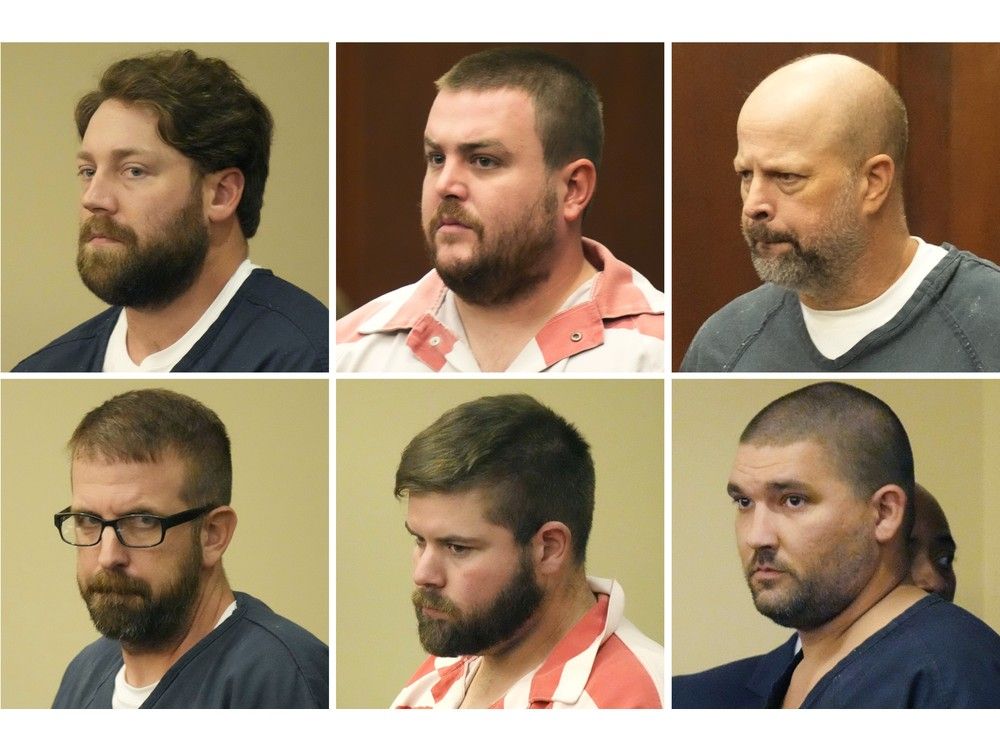Minnesota trooper is charged with murder in shooting of motorist Ricky Cobb II during a traffic stop
Author of the article:Associated Press
Associated Press
Steve Karnowski And Trisha Ahmed
Published Jan 24, 2024 • 4 minute read
Minnesota-Troopers-Freeway-Shooting
On Wednesday, Jan. 24, 2024, prosecutors charged Minnesota State Patrol Trooper Ryan Londregan with murder and two other counts in the shooting death of Cobb during a stop in July 2023.
MINNEAPOLIS (AP) — A Minnesota state trooper was charged with murder Wednesday in the shooting of motorist Ricky Cobb II, who failed to get out of his car during a July traffic stop and took his foot off the brake when officers tried to arrest him.
Trooper Ryan Londregan, 27, was charged with second-degree unintentional murder, first-degree assault and second degree manslaughter in the death of Cobb, a 33-year-old Black man, Hennepin County Attorney Mary Moriarty said at a news conference. She said Londegran’s use of deadly force was not justified.
“As with all Minnesota law enforcement officers, state troopers may only use deadly force when it is necessary to protect a person from a specific identified threat of great bodily harm or death that was reasonably likely to occur. That did not exist in this case. Ricky Cobb II should be alive today,” Moriarty said.
Londregan’s attorney Chris Madel called his client “a hero,” saying Londregan was trying to protect himself and a fellow trooper. Madel immediately filed papers seeking to have the case dismissed or at least to have Moriarty removed from the case.
“This county attorney is literally out of control. Open season on law enforcement must end. And it’s going to end with this case,” Madel said in a video statement.
Londregan has not been arrested. Moriarty said her office will not seek to hold him on bail but will ask the court to require him to surrender his passport and firearms. She expected his first court appearance to be scheduled for later this week or early next week.
Londregan shot Cobb after a July 31 traffic stop on Interstate 94 in Minneapolis. Two other troopers, including Brett Seide, initially pulled Cobb over when he saw the lights were out on the Ford Fusion that Cobb was driving, according to the criminal complaint.
Seide checked Cobb’s record and found he was wanted for violating an order for protection in neighboring Ramsey County. There was no outstanding arrest warrant, however, so the two troopers checked with Ramsey County officials to find out if they wanted Cobb taken into custody, the complaint said.
Ramsey County asked that he be arrested, and in the meantime, Londregan arrived to help.
Seide approached the driver’s side of Cobb’s car while Londregan went to the passenger door, according to the complaint.
The troopers asked Cobb to get out of the car, whose doors were locked and front windows down. Seide told him he was under arrest while Londregan reached inside, unlocked the doors and began opening the passenger door. The complaint said Cobb then shifted the car into drive and took his foot off the brake.
According to the complaint, Cobb’s car began to slowly move forward. Londregan reached for his gun. Cobb stopped the car. The trooper pointed his gun at Cobb and yelled, “Get out of the car now!” Cobb took his foot off the brake again. Within less than a second, Cobb fired his handgun twice at Cobb, striking him both times in the chest, the complaint said.
The car accelerated forward while Seide’s torso was still inside. Seide and Londregan tried to keep up with the car for several feet before falling to the ground. The car eventually collided with a concrete median about a quarter mile (0.4 kilometer) away.
The troopers caught up, pulled Cobb out and attempted lifesaving measures. Cobb was pronounced dead at the scene.
The defense filing quotes Seide and a third trooper, Garrett Erickson, as telling investigators that they believed Seide’s life was in danger.
The Minnesota State Patrol’s lead use-of-force trainer later told investigators that a reasonable officer would not believe that pointing a gun at a fleeing driver and yelling at him to stop would result in him stopping.
According to the complaint, State Patrol policy states that troopers shall not fire at a moving vehicle except when deadly force is authorized, and that troopers should not put themselves in a position that increases the risk that a vehicle that they’re approaching can be used as a deadly weapon.
The chief of the State Patrol, Col. Matt Langer, said in a statement that Londergan will remain on paid leave during an ongoing internal affairs investigation.
“This is a sad situation for everyone involved,” Langer said. “We acknowledge the deep loss felt by Mr. Cobb’s family and friends. We also recognize the gravity of this situation for the State Patrol and our troopers tasked with making difficult split-second decisions.”
Octavia Ruffin, Cobb’s sister, told The Associated Press that the family would not comment Wednesday and plans to hold a news conference on Thursday. Cobb’s family and racial justice groups demanded in August that Democratic Gov. Tim Walz fire the troopers who were involved.
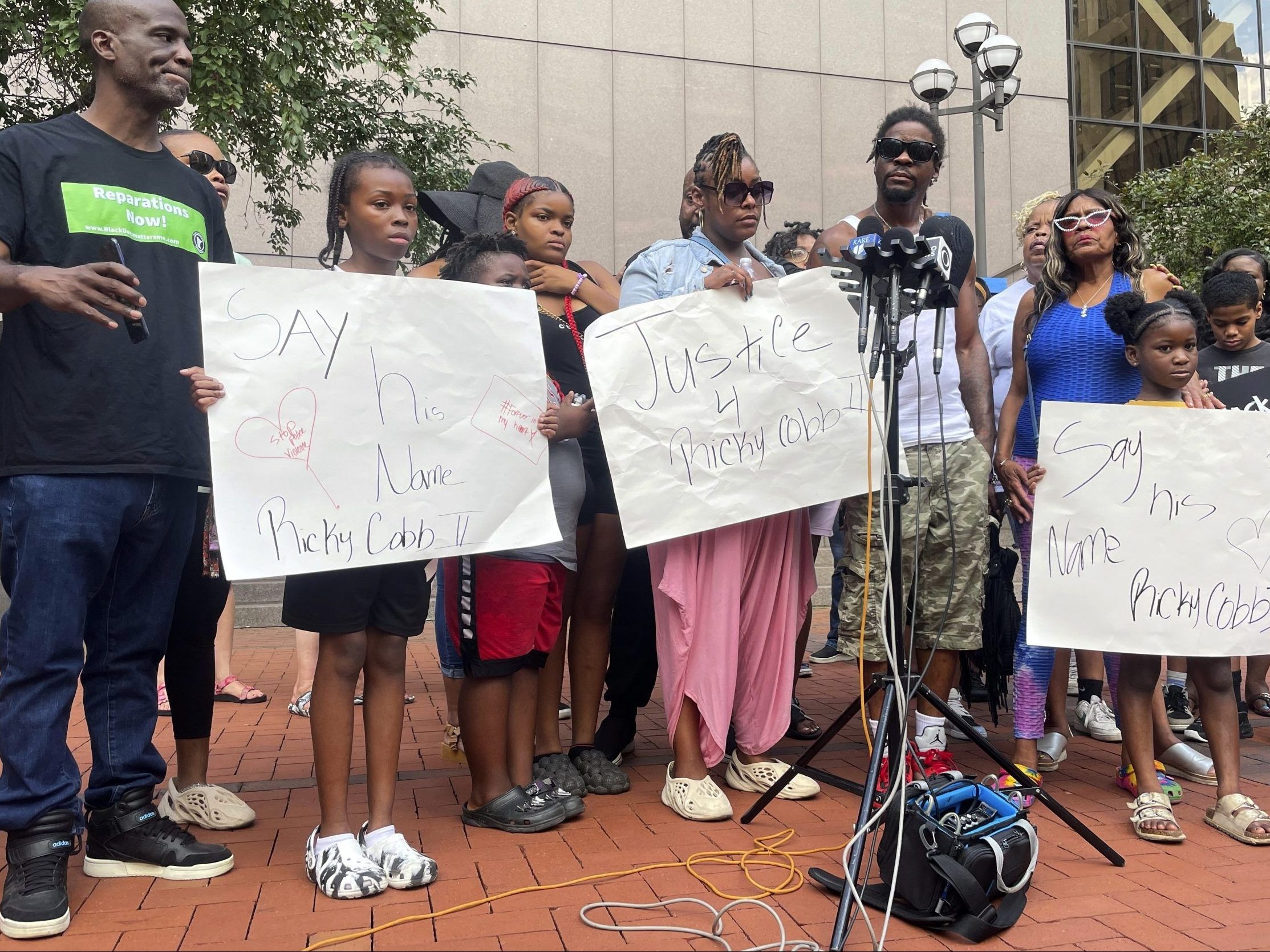
 torontosun.com
torontosun.com
Author of the article:Associated Press
Associated Press
Steve Karnowski And Trisha Ahmed
Published Jan 24, 2024 • 4 minute read
Minnesota-Troopers-Freeway-Shooting
On Wednesday, Jan. 24, 2024, prosecutors charged Minnesota State Patrol Trooper Ryan Londregan with murder and two other counts in the shooting death of Cobb during a stop in July 2023.
MINNEAPOLIS (AP) — A Minnesota state trooper was charged with murder Wednesday in the shooting of motorist Ricky Cobb II, who failed to get out of his car during a July traffic stop and took his foot off the brake when officers tried to arrest him.
Trooper Ryan Londregan, 27, was charged with second-degree unintentional murder, first-degree assault and second degree manslaughter in the death of Cobb, a 33-year-old Black man, Hennepin County Attorney Mary Moriarty said at a news conference. She said Londegran’s use of deadly force was not justified.
“As with all Minnesota law enforcement officers, state troopers may only use deadly force when it is necessary to protect a person from a specific identified threat of great bodily harm or death that was reasonably likely to occur. That did not exist in this case. Ricky Cobb II should be alive today,” Moriarty said.
Londregan’s attorney Chris Madel called his client “a hero,” saying Londregan was trying to protect himself and a fellow trooper. Madel immediately filed papers seeking to have the case dismissed or at least to have Moriarty removed from the case.
“This county attorney is literally out of control. Open season on law enforcement must end. And it’s going to end with this case,” Madel said in a video statement.
Londregan has not been arrested. Moriarty said her office will not seek to hold him on bail but will ask the court to require him to surrender his passport and firearms. She expected his first court appearance to be scheduled for later this week or early next week.
Londregan shot Cobb after a July 31 traffic stop on Interstate 94 in Minneapolis. Two other troopers, including Brett Seide, initially pulled Cobb over when he saw the lights were out on the Ford Fusion that Cobb was driving, according to the criminal complaint.
Seide checked Cobb’s record and found he was wanted for violating an order for protection in neighboring Ramsey County. There was no outstanding arrest warrant, however, so the two troopers checked with Ramsey County officials to find out if they wanted Cobb taken into custody, the complaint said.
Ramsey County asked that he be arrested, and in the meantime, Londregan arrived to help.
Seide approached the driver’s side of Cobb’s car while Londregan went to the passenger door, according to the complaint.
The troopers asked Cobb to get out of the car, whose doors were locked and front windows down. Seide told him he was under arrest while Londregan reached inside, unlocked the doors and began opening the passenger door. The complaint said Cobb then shifted the car into drive and took his foot off the brake.
According to the complaint, Cobb’s car began to slowly move forward. Londregan reached for his gun. Cobb stopped the car. The trooper pointed his gun at Cobb and yelled, “Get out of the car now!” Cobb took his foot off the brake again. Within less than a second, Cobb fired his handgun twice at Cobb, striking him both times in the chest, the complaint said.
The car accelerated forward while Seide’s torso was still inside. Seide and Londregan tried to keep up with the car for several feet before falling to the ground. The car eventually collided with a concrete median about a quarter mile (0.4 kilometer) away.
The troopers caught up, pulled Cobb out and attempted lifesaving measures. Cobb was pronounced dead at the scene.
The defense filing quotes Seide and a third trooper, Garrett Erickson, as telling investigators that they believed Seide’s life was in danger.
The Minnesota State Patrol’s lead use-of-force trainer later told investigators that a reasonable officer would not believe that pointing a gun at a fleeing driver and yelling at him to stop would result in him stopping.
According to the complaint, State Patrol policy states that troopers shall not fire at a moving vehicle except when deadly force is authorized, and that troopers should not put themselves in a position that increases the risk that a vehicle that they’re approaching can be used as a deadly weapon.
The chief of the State Patrol, Col. Matt Langer, said in a statement that Londergan will remain on paid leave during an ongoing internal affairs investigation.
“This is a sad situation for everyone involved,” Langer said. “We acknowledge the deep loss felt by Mr. Cobb’s family and friends. We also recognize the gravity of this situation for the State Patrol and our troopers tasked with making difficult split-second decisions.”
Octavia Ruffin, Cobb’s sister, told The Associated Press that the family would not comment Wednesday and plans to hold a news conference on Thursday. Cobb’s family and racial justice groups demanded in August that Democratic Gov. Tim Walz fire the troopers who were involved.

Minnesota trooper is charged with murder in shooting of motorist Ricky Cobb II during a traffic stop
Trooper Ryan Londregan, 27, was charged with second-degree unintentional murder, first-degree assault and second degree manslaughter.
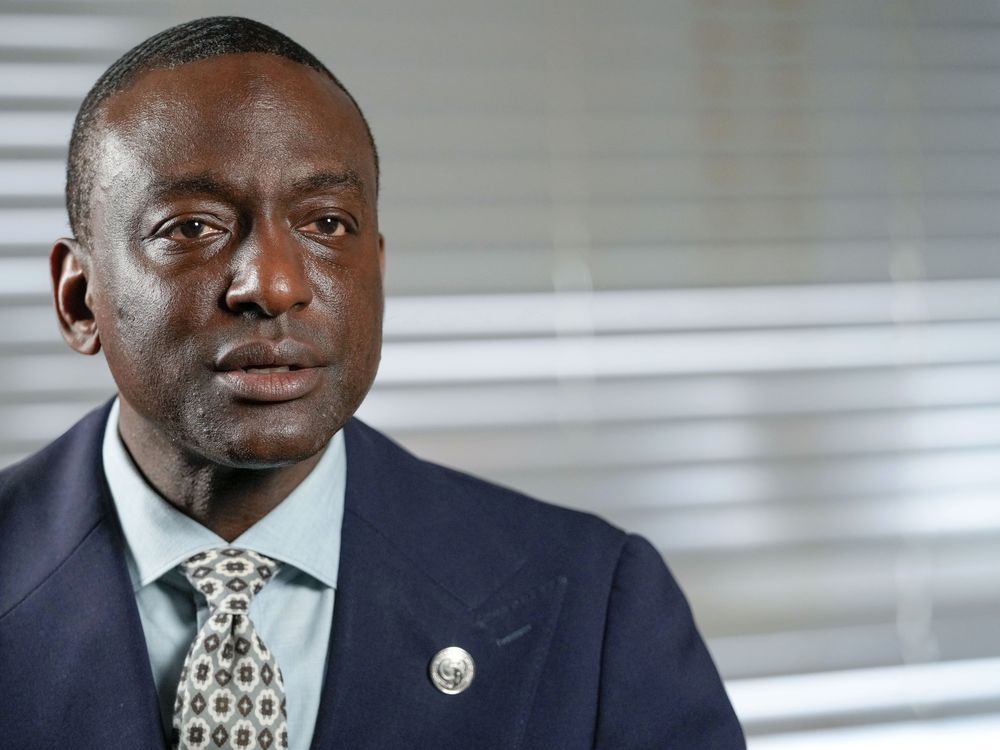


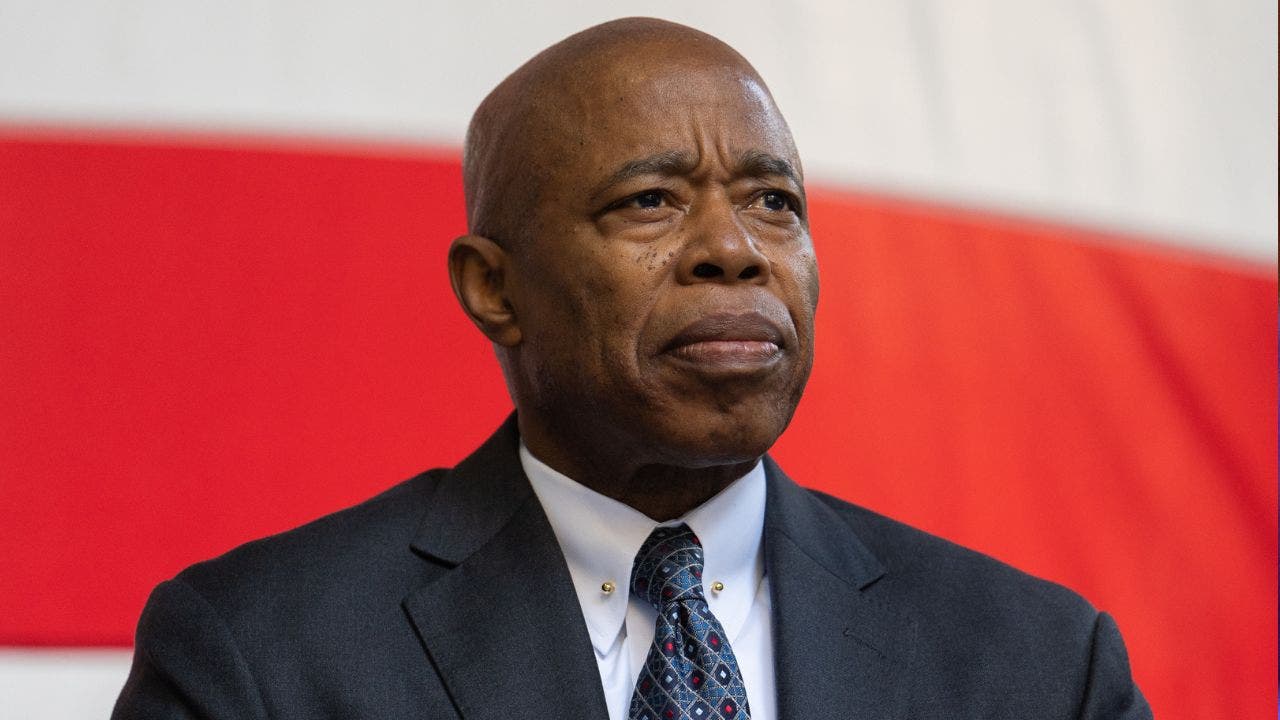
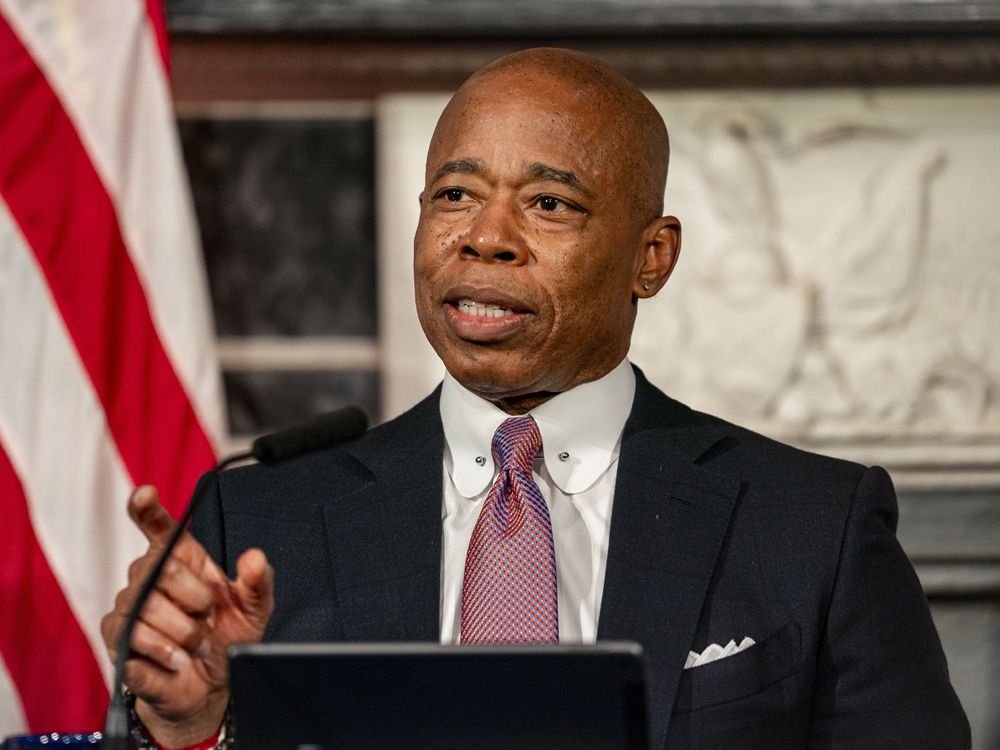
![Isaac-Goodlow-shooting-Feb28-scaled-e1709133622601[1].jpg Isaac-Goodlow-shooting-Feb28-scaled-e1709133622601[1].jpg](https://forums.canadiancontent.net/data/attachments/19/19569-c046b9a610f33a7dac5d8b59dfc7aa22.jpg)




